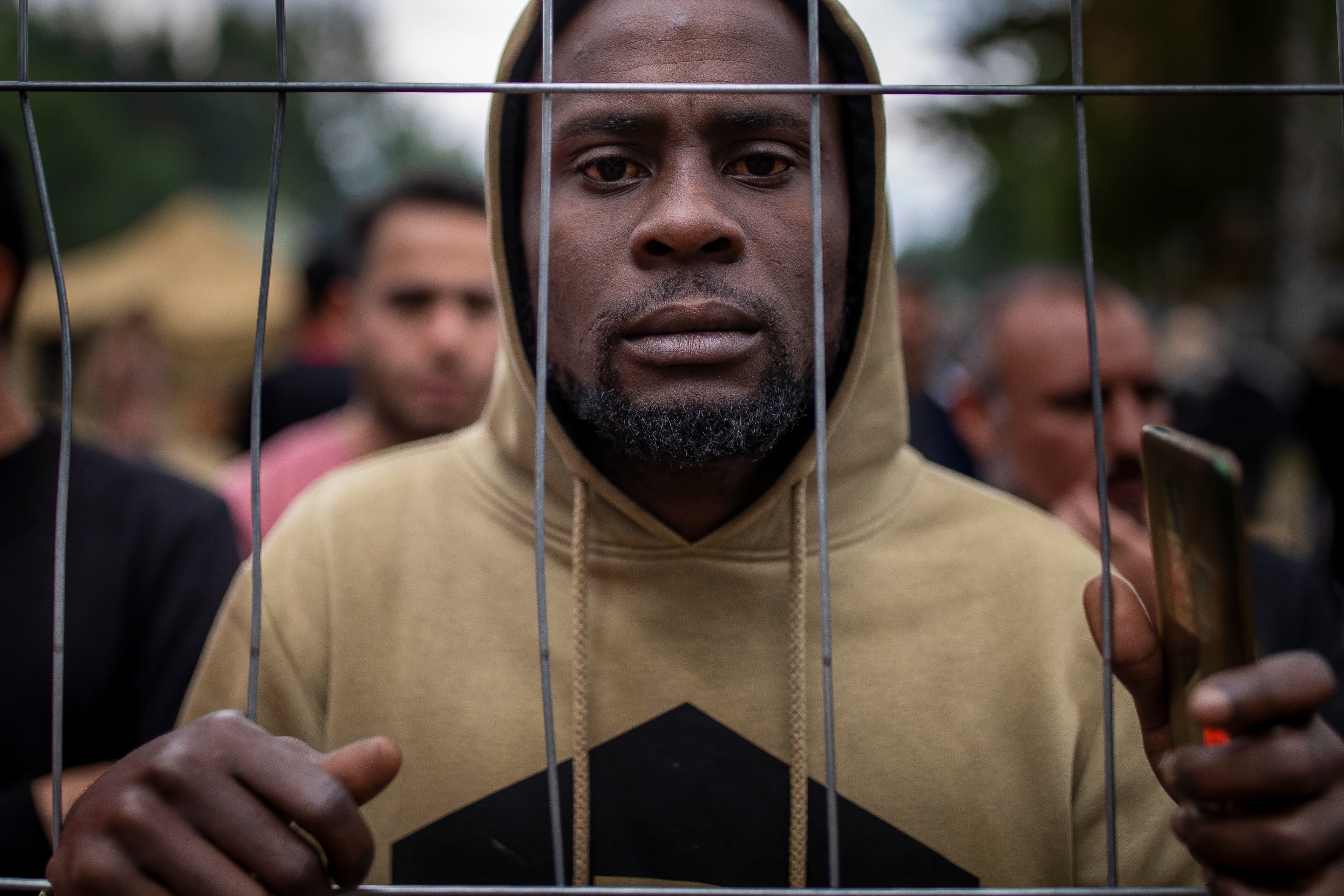EU mulling ways to end jet lease to Belarus’ airline
European Union foreign ministers have looked at ways to stop illegal migration into the 27-nation bloc from neighboring Belarus including stopping companies from leasing jets to Belarusian airline Belavia

Your support helps us to tell the story
From reproductive rights to climate change to Big Tech, The Independent is on the ground when the story is developing. Whether it's investigating the financials of Elon Musk's pro-Trump PAC or producing our latest documentary, 'The A Word', which shines a light on the American women fighting for reproductive rights, we know how important it is to parse out the facts from the messaging.
At such a critical moment in US history, we need reporters on the ground. Your donation allows us to keep sending journalists to speak to both sides of the story.
The Independent is trusted by Americans across the entire political spectrum. And unlike many other quality news outlets, we choose not to lock Americans out of our reporting and analysis with paywalls. We believe quality journalism should be available to everyone, paid for by those who can afford it.
Your support makes all the difference.European Union foreign ministers looked at ways on Monday to stop the illegal migration into the 27-nation bloc from neighboring Belarus including stopping companies from leasing jets to Belarusian airline Belavia.
The EU has accused the government of Belarusian President Alexander Lukashenko of facilitating migration into the bloc in retaliation for EU sanctions. Thousands of migrants have been lured to Belarus on tourist visas and encouraged to cross into Poland Lithuania and to a lesser extent Latvia — all three of which are EU nations that border Belarus.
EU foreign policy chief Josep Borrell said after the meeting that the bloc is ready to adopt sanctions against Belavia.
“Using migrants for political purposes is not acceptable," Borrell said.
The migration numbers began increasing a year ago after the EU slapped sanctions on Lukashenko’s government over the August 2020 presidential election, which the West views as rigged, and the security crackdown on the Belarusian opposition and peaceful protesters that followed.
“Even though the situation seems under control, the flows are actually not diminishing,” Lithuanian foreign affairs minister Gabrielius Landsbergis said. “What tools do countries like Lithuania, Latvia and Poland need to use, or can use, in order to stop the weaponized migration that is being forced on the European Union?”
Landsbergis said the EU needs to find an efficient way to stop new flights from North Africa and Middle East from flying to Minsk.
“The European Union did take some steps that proved to be quite useful: stopping the flights from Iraq, and stopping the flights from Jordan and Lebanon. But there are a number new flights that are being opened up to fly to Minsk."
Landsbergis asked for sanctions on Lukashenko for exploiting vulnerable people, and against Belavia. He also urged the bloc to send a clear message to companies carrying people to Belarus who have the intention to migrate that they are on the EU's radar.
Borrell said there “is a long list of countries" from where people are transported to Minsk via other airlines than Belavia. He said the EU will contact them all in a bid to cut the numbers.
Irish Foreign Affairs Minister Simon Coveney whose country is a hub for aircraft leasing, said he is open to a new round of sanctions targeting individuals in Belarus. Coveney, however, insisted that ending existing leasing contracts could be difficult from a legal standpoint.
“How we actually increase the pressure through sanctions is something that Ireland is very much open to," Coveney said. “But I think we would also make a distinction between sanctions that would involve no further, or future, aircraft leasing to Belavia, in contrast to existing contracts that are in place where there are legal obligations."
German Foreign Minister Heiko Maas said Lukashenko “is nothing other than the boss of a state-run people-smuggling ring, and we are no longer prepared to watch as companies, such as airlines, also make money from bringing refugees to Germany or other European countries."
German Chancellor Angela Merkel’s spokesperson, Steffen Seibert, said separately in Berlin that Germany has noticed an increase of illegal entries along the German-Polish border since August and that the country’s interior minister will present various options to respond to this at Wednesday’s Cabinet meeting. A spokesperson for Germany’s Interior Ministry, Alina Vick, said about 4,500 illegal entries from Poland have been registered since August.